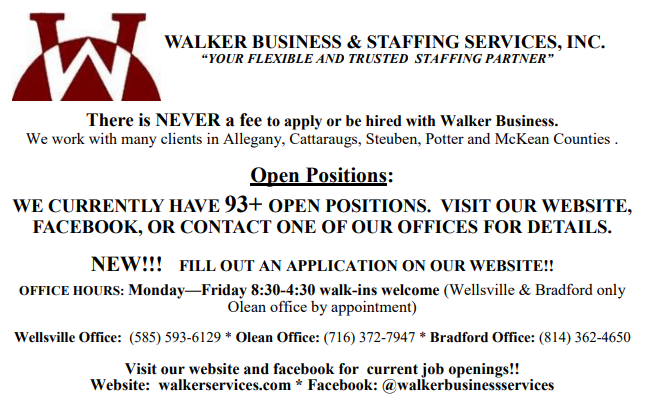A column by John Anderson, 10/14/21
Several months ago, Andrew Harris contacted me with a question about police reports and using names. Since I was in Texas and it was breakfast, I put my brisket aside for lunch and started off with a heavy discussion.
I think the conversation went like this.
Andrew: Yo, Editor? Me: What’s up, Ace. Andrew: How can I get police reports to run in the Wellsville Sun and I am not using any names.
Me: No names at all? You can’t do that.
Andrew: Well, if (insert elected official here) gets caught (insert wild, illegal act here) then we would.
We continued the conversation later that evening and came up with a policy for the Sun. And last night, we argued over it again.
To know where we are today, we have to go back to the “good old days.”
When the local newspapers were less than 100 years old, it was common for a publisher/owner to make sure certain things were in the paper and others were not. However, things changed and ethics became much stronger 50 years ago. I remember in the 90’s, every single little thing and every single name went in the published police reports
If you backed into an electric pole, you would see this: Police said Jane Doe, 48, of Scott Ave., backed into a light pole at 4:27 p.m. on Tuesday. There was no damage to the pole, a slight dent to the vehicle. No tickets were issued, no injuries were reported.
The next day, Jane would be ridiculed by her students and co-workers because she said she was 39. Also, people knew exactly where she lived.
We would get calls at the old Reporter office on Main Street by the innocent before proven guilty to keep their names out of the paper. Being on Main Street, people would walk in and plead their case as well. We always said “we have to” but never had a concrete reason WHY we had to.
I should follow this column up with a few funny stories where people tried to keep their names out of the paper, but this one is to explain why names are being kept out of the new newspaper, online publications.
The Wellsville Village Police would fax over their laundry list of complaints, investigations and arrests. The state police had a ledger we called the blotter and it listed every single call, complaint and arrest. Each morning, the media would be in the lobby thumbing through the pages, looking for something interesting to put in the reports. We would let the radio guys like Bob Weigand and Chris Eldridge go first, then the Olean and Wellsville newspapers would get a crack at it.
I liked going last because the Wellsville-based State Police was an absolute who’s-who of the top law enforcement at the time. Troopers became investigators and administration at the highest level all over the state.
They would sit in the front room with Beeps and Penny (dispatchers) sharing stories and solving cases. They would give me a glare because they trusted me not to write something and they also would leave and finish the discussion in another room because they didn’t trust me!
For half an hour each morning, I could hear about investigations and cases that would give background to incredible stories and arrests.
When the barracks moved to Amity, everything changed. Sure they had a state-of-the-art facility and space, but the cozy conversation, relaxed atmosphere and access became cold windows and a ton of offices.
Fortunately, my weekly complaining about not being able to get access to the blotter ended when Trooper Rebecca Gibbons called to see what could be done, as they had the same issues with reporters at other barracks. Most of my ideas were met with “great idea, but we can’t do that.”
Suddenly I was on weekly conference calls with the state as we talked about what could be done and how it could be done without errors. Thanks to Trooper Gibbons’ vision, a website was created for reporters. At first it was more work for the troopers. They wrote tickets with a pen and wrote entries into the ledger. Today, tickets and entries are all done by computer. You might remember Trooper Gibbons as she was the spokeswoman for the troopers during the Bucky Phillips escape and capture.

As the Wellsville Sun transitioned into an accredited media outlet, the police reports are coming in and access has been gained.
But what about the names?
When we printed those names in the paper, the only way you could find them again was by checking the microfilm at the library.
As a test, I typed in a few names of people who have been in the news lately who are not elected officials. The first site that popped up was the Wellsville Sun. Second, their Facebook and LinkedIn. The next seven were other media outlets and the Sun again.
That’s just today. It’s also tomorrow and 10 or 20 years from now. If you are charged for a fight, or backing in a pole or petit larceny at age 19, should your name live on the internet forever and cost you a job? Or a promotion?
Our answer is no.
There seems to be a lot of debate directed at withholding names. One person who called me on this really took me to task. I asked him to tell me five things he did between 17 and 25 that were outrageous, the, “Thank God we weren’t caught” moments. He came up with seven. He also said he matured and those acts did not define him. Of course not, he’s a leader now and a good parent. If he was ever caught and charged with a misdemeanor he would not have his job today.

Criminal mischief is not a good look. Having to explain to an employer how you got the toilet paper and how it got in the trees and what you did to actually get caught is also not a good look.
Major publications are actually removing police reports. In felony cases, they are accepting calls and “trying” the case and deleting the arrests on the web site if warranted.
If there is a felony charge, you will see the name. If it’s a strange circumstance or a public figure, you will see the name. If a police agency releases the name and the Wellsville Sun doesn’t use it, you can find the name pretty easily.
I applaud the police for their transparency and reporting. I was talking to a trooper last week who takes calls blaming him for those being arrested for violent crimes allowed to walk with an appearance ticket and no bail. That’s not on the trooper, the judge or clerk. It’s the needs-to-be-changed law from the state under former Gov. Andrew Cuomo.
While a computer will generate the date, time and location of an arrest, in the case of an act against a child, we make those vague and never list the actual age or gender of the victim. These are just rules I’ve lived by and Andrew agrees with.
While looking things up, I stumbled on an old marijuana arrest and of all the negative comments, one person said, “who cares, in 10 years having half-a-joint will be legal.” Well, 11 years later they were right.
So the answer is the internet. And it’s about second chances. I’ll leave you with one story before I argue with Andrew over a name I think should appear in the reports.
We had a guy call to tell us he was charged with possession of marijuana and we shouldn’t put his name in the paper. “Why,” we asked. He said the cops didn’t have any evidence on him. I tried to explain to him that the police would not arrest him for drugs if there were no drugs. He interrupted me and said,” I’ll tell you why there’s no evidence … before they could take it, I ate it.”
(If you want to debate this further, email editor@wellsvillesun.com and ask for Andrew)







